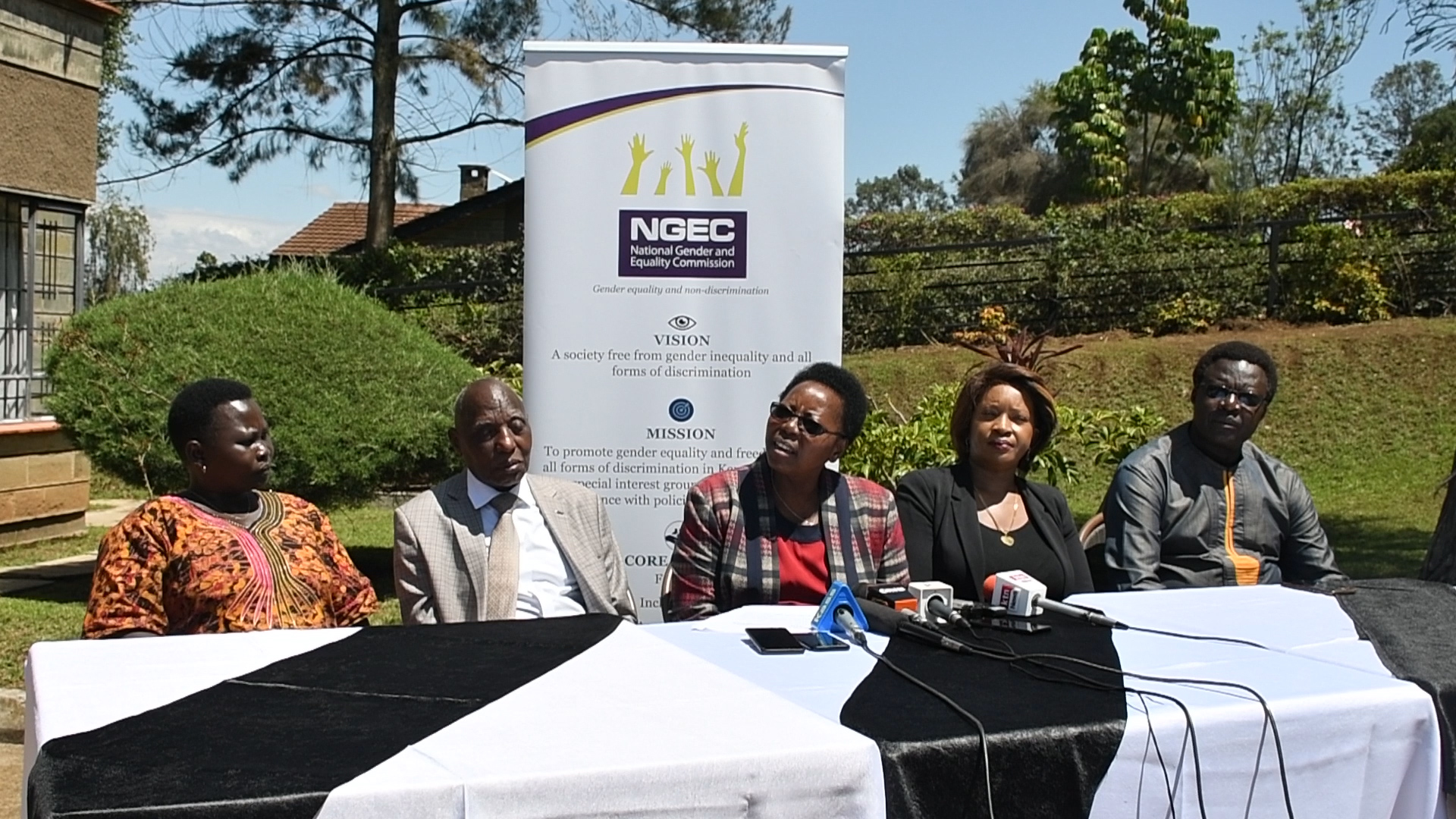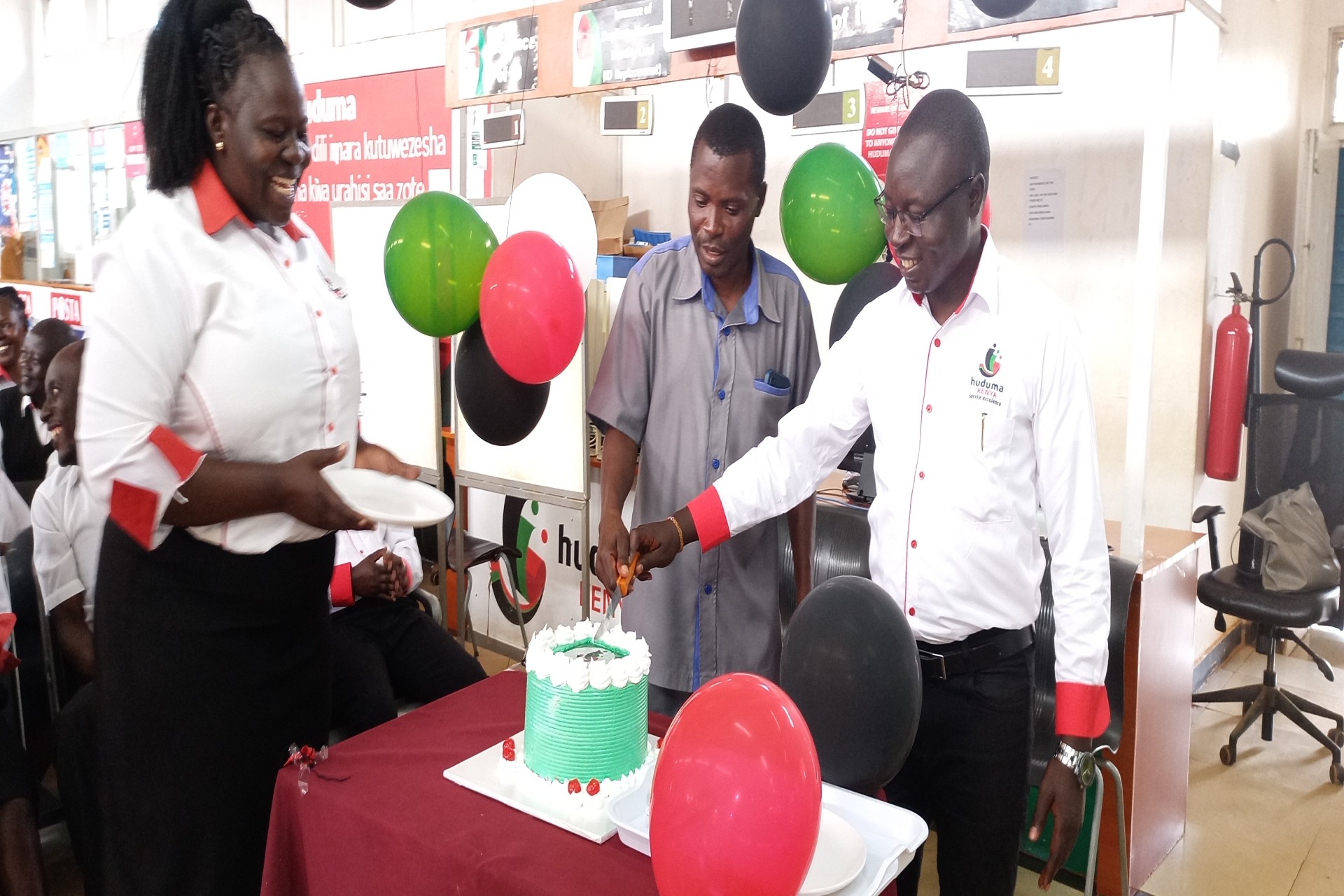The National Gender and Equality Commission (NGEC) has petitioned parliament to enact laws to bring into effect the two-thirds gender rule.
NGEC Chairperson Dr. Joyce Mutinda said though Members of Parliament had failed to enact the said legislation, political parties have no choice but to comply with the two-thirds gender principle when nominating candidates for parliamentary and senatorial elections.
Dr. Mutinda noted that political parties were bound by the April 2017 High Court ruling on adherence to the respective provision as the judgment delivered by Justice Chacha Mwita remains valid as it has not been challenged since it was made.
In making the ruling on the Katiba Institute’s constitutional petition against Independent Electoral Boundaries Commission (IEBC), judge Mwita directed the latter to reject any nomination list of a political party for its candidates for the 290 constituency-based elective positions for members of National Assembly and 47 county-based positions for the member of the Senate that do not comply with two-thirds gender rule.
Parliament is in its last days, with both the Senate and the National Assembly set to adjourn indefinitely in June, giving MPs time for campaigns until the end of their terms in August.
Twelve years since the new Constitution was promulgated in Kenya, the country is yet to have a law on the achievement of the two-thirds gender principle in elective and appointive positions as provided in Article 27(8).
The Chairperson added, “The best gift legislators can give Kenyans before their term ends is to enact legislation to promote special interest groups including women, youth, persons with disabilities, ethnic minorities and marginalized communities representation in parliament as envisaged in Article 100 of the Constitution.”
Addressing the media in Nakuru Friday, Dr. Mutinda stated that constitutional imperatives designed to guarantee equality and inclusion of special interest groups in public offices should be backed by sound legislation, administrative rules, regulations and guidelines.
While urging political parties to complete nominations in good time to allow for dispute resolution mechanisms as provided by law, NGEC called on party leaders to take measures to formulate rules and regulations proposed to actualize the two-thirds gender principle during nominations for the Members of Parliament (MP) and Senate candidates.
In 2012, the Supreme Court gave Parliament till August 27, 2015, to pass a law effecting the principle lest it be dissolved. Parliament extended the period to August 27, 2016. The deadline elapsed and nothing happened.
Later, the Centre for Rights, Education and Awareness (Creaw) and the National Women Steering Committee sued the National Assembly and Senate in the High Court for failing to enact this law.
In March 2017, the Court ordered the two houses to pass the gender principle law within 60 days but this did not happen. Again, the Constitution of Kenya (Amendment) (No 4) Bill, 2015 sponsored by Garissa Town MP Aden Duale (Duale Bill) could not pass due to lack of quorum. It was shelved in February, 2019, after a fourth failed attempt.
In 2020, retired Chief Justice David Maraga advised the President to dissolve Parliament for failing to enact a law to actualize the gender principle. This advisory, however, attracted a flurry of petitions whose determination are yet to be made.
Dr. Mutinda further urged political parties to ensure that venues and materials during nominations were friendly to persons with disabilities and the elderly, especially those who were illiterate and lactating mothers.
“Leaders of political parties should be prevailed upon to pledge their unequivocal support towards realization of the not more than two-thirds gender principle in both elective and appointive positions,” She stated.
The Chairperson said campaigns need to be conducted in a civilized and secure environment to enable law enforcement arms to provide adequate security to women and persons with disabilities who may be subjected to acts of violence.
She challenged political leaders to be at the forefront in encouraging special interest groups to register and participate in electoral processes including vying for various elective positions.


